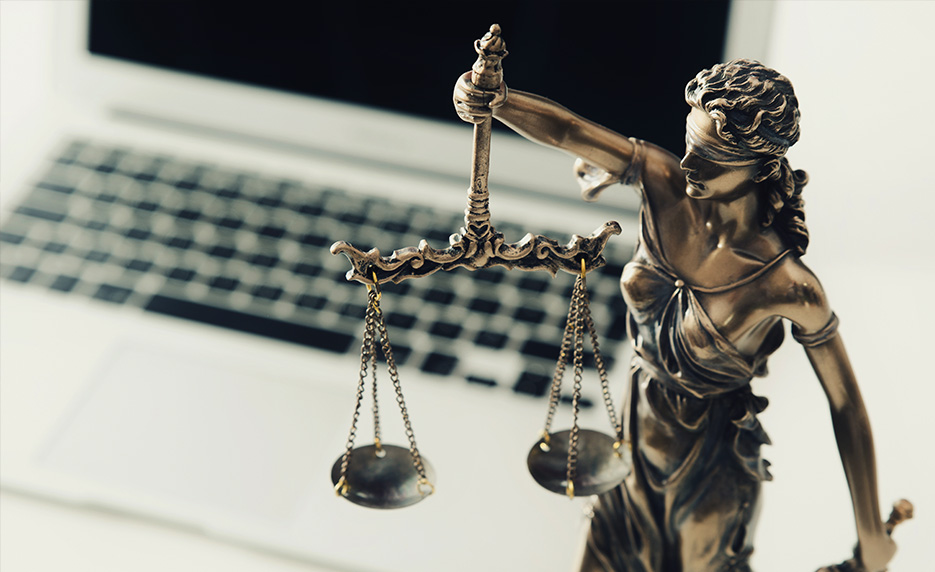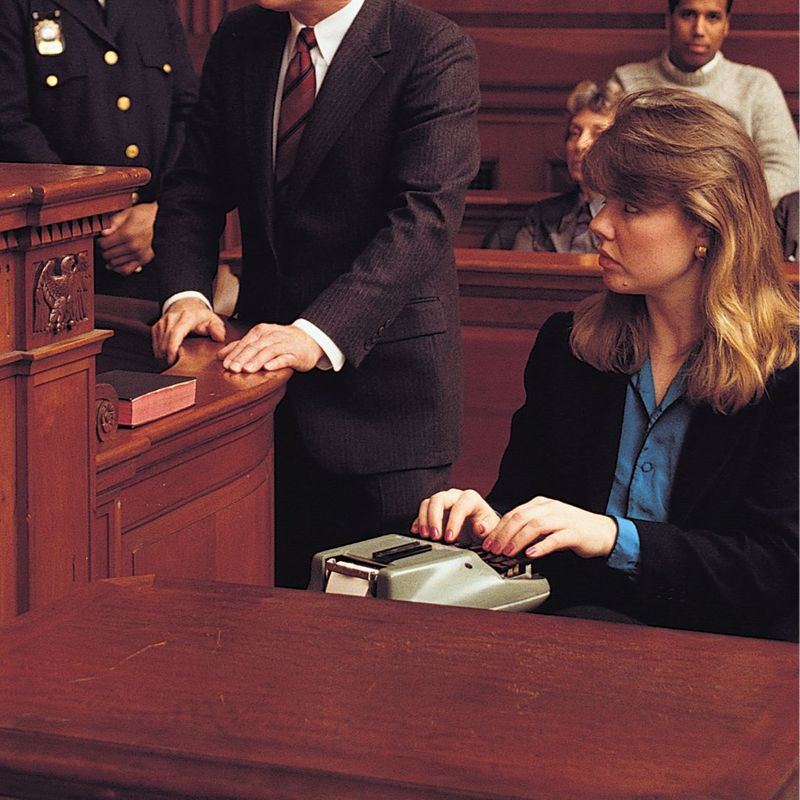What sets durham court reporting apart from national court reporting services
All About Court Reporting: Crucial Insights Into Its Importance in Legislation
Court reporting offers a crucial function within the legal structure, supplying a accurate and reliable document of procedures. Through innovative strategies and tools, court press reporters capture the nuances of statements and legal dialogue. The relevance of their work extends beyond plain transcription. As the lawful landscape advances, so as well does the function of technology in court reporting. Recognizing these dynamics discloses deeper effects for justice and openness in the legal system.
The Duty of Court Reporters in the Legal System

Although typically ignored, stenotype reporter play a vital role in the lawful system by making sure a verbatim and precise record of procedures. Their main duty includes recording talked words throughout trials, depositions, and other lawful events, which functions as an official document for future reference. This documents is very important for charms, as it offers the necessary details for evaluating decisions made by juries and judges.
Court reporters need to possess phenomenal paying attention skills and a deep understanding of legal terms to catch the subtleties of statement and argumentation precisely. Their work adds to openness within the judicial procedure, enabling liability and justness. Furthermore, they help with accessibility to justice by making documents offered to entailed parties, ensuring that everyone has the opportunity to examine the process. This way, court press reporters copyright the integrity of the legal system, enhancing the relevance of precise communication in issues of regulation.
Strategies and Tools Made use of in Court Reporting
In court reporting, different methods and devices enhance the accuracy and performance of transcription. Stenography innovation plays a considerable duty, allowing reporters to record spoken words promptly, while electronic recording methods use different remedies for documentation. Recognizing these tools is essential for grasping exactly how stenotype reporter accomplish their critical function in the legal system.
Stenography Modern Technology Summary
Stenography modern technology serves as the foundation of contemporary court reporting, making it possible for reliable and precise transcription of spoken discussion. Making use of specialized equipments called stenographs, stenotype reporter can record speech at impressive speeds, frequently surpassing 200 words per minute. These machines utilize an one-of-a-kind key-board design that allows multiple tricks to be pressed simultaneously, developing phonetic representations of words - durham court reporting. This method minimizes the requirement for extensive punctuation and boosts transcription accuracy. Additionally, stenographers make use of different shorthand methods and symbols to further improve the process, making certain that no information is overlooked throughout procedures. The combination of stenography technology not just fosters reliable communication in lawful setups but additionally supports the integrity of the judicial process by giving trustworthy and accurate documents of discussions
Digital Recording Approaches
An enhancing number of court reporting specialists are transforming to digital recording techniques to enhance the precision and effectiveness of their transcriptions. These strategies make use of innovative sound and video technology to capture process in real-time. Digital recorders, frequently combined with top quality microphones, assure that every word talked is protected with clarity. Specialized software application can record audio documents automatically, allowing for quicker turn-around times. Some professionals integrate double recording systems for redundancy, guaranteeing no vital information is shed. Additionally, digital recordings can be easily indexed and looked, helping with quick access of certain segments. As legal atmospheres develop, embracing these digital devices not just improves the reporting procedure yet likewise maintains the honesty of the record.
The Importance of Precision in Transcription
Accuracy in transcription is vital in court reporting, as it ensures that lawful records show the true material of procedures. This precision can considerably affect situation results, influencing the choices made by discretionary. Consequently, preserving high standards of accuracy is vital in the lawful profession.
Accuracy in Legal Records
The lawful system depends heavily on significant disagreements and convincing unsupported claims, the true foundation of judicial procedures lies in the accuracy of legal records. Accurate transcription is essential, as it assures that every ruling, concern, and declaration is recorded correctly. Such precision offers several purposes, including providing a trusted referral for appeal processes and keeping the stability of the judicial system. Mistakes in transcription can bring about misunderstandings, misconceptions, and possibly destructive consequences for all parties included. Court reporters should possess extraordinary skills and attention to information, as their work straight influences the clearness of legal files. Eventually, the precision of lawful records underpins the trust fund positioned in the judicial procedure, enhancing the value of careful transcription.

Influence on Situation Outcomes
When legal proceedings unfold, the accuracy of transcription commonly dictates the trajectory of a case's result. Precise court reporting assurances that every word spoken is successfully caught, allowing lawyers, courts, and courts to make informed decisions based on the record. Mistakes in transcription can lead to misunderstandings, false impressions, and possibly unjustified judgments. The honesty of lawful documents depends heavily on the precision of these records, as they offer as the structure for appeals and additional lawsuits. In high-stakes situations, where the effects are her response profound, the duty of a stenotype reporter becomes also much more vital. For that reason, preserving extensive criteria in transcription not just sustains the legal process but additionally promotes the concepts of justice and justness in the court room.
Court Reporting in Different Legal Settings
Court reporting plays a crucial duty across different legal setups, making certain that process are properly recorded for future referral. In criminal court, court reporters transcribe testaments, proof, and judicial rulings, which are critical for charms and instance reviews. In civil litigation, exact transcripts promote the discovery procedure and provide a reputable document for test procedures. Administrative hearings frequently count on court reporters to preserve a main record, making certain transparency and responsibility in governmental procedures. Family members courts also benefit from court reporting, as accurate paperwork of proceedings can influence guardianship choices and settlements. Furthermore, depositions in pre-trial stages call for accurate recordings to catch the subtleties of witness testimonies, which might be significant fit situation approaches. Overall, court reporting serves as a foundation in the lawful system, cultivating justness and quality throughout varied judicial atmospheres.
The Effect of Innovation on Court Reporting
As technology remains to develop, its impact on court reporting has actually ended up being progressively considerable. Developments such as digital recording, real-time transcription software application, and expert system have actually changed traditional practices. Digital audio recorders currently record court procedures with exceptional quality, enabling stenotype reporter to concentrate on subtleties and context instead of solely on inputting. Real-time transcription innovations allow instant accessibility to records, advertising performance and boosting cooperation amongst lawyers. Additionally, expert system tools are being integrated to assist in the transcription procedure, lowering human mistake and quickening document generation. Despite these developments, the important skills of stenotype reporter remain important, as they provide a nuanced understanding of legal language and court room dynamics. Eventually, technology matches rather than replaces the experience of court press reporters, making sure that the stability and precision of legal documentation are maintained in a progressively electronic landscape.
Occupation Opportunities and Pathways in Court Reporting
The evolution of technology in court reporting has opened a selection of profession chances for aiming professionals in the field. Traditionally, stenotype reporter were go to this web-site largely in charge of recording legal process. Developments such as electronic recording and real-time reporting have increased their roles.
Today, court reporters can concentrate on areas such as captioning for tv programs, offering transcription solutions for legal firms, and operating in the corporate industry for meetings or depositions - durham court reporting. Furthermore, possibilities in remote reporting, particularly due to the surge of digital court rooms, have ended up being increasingly prevalent
Educational paths consist of official training programs, certification training courses, and proceeding education to stay upgraded with technical changes. Networking within specialist and lawful organizations additionally plays a significant duty in profession improvement. Overall, the diverse chances in court reporting mirror the vibrant nature of the lawful career and the raising demand for skilled professionals.
The Future of Court Reporting in an Evolving Legal Landscape
Exactly how will the role of court reporting adapt as the legal landscape remains to evolve? As technology breakthroughs, court reporting is likely to embrace cutting-edge devices such as fabricated knowledge and real-time transcription software. These advancements might boost precision and performance in catching legal procedures. The boosting frequency of remote hearings requires that court press reporters end up being adept in digital systems, guaranteeing smooth documentation regardless of place.
At the same time, court press reporters will need to adapt their skills to handle brand-new kinds of cases, such as those including cyber regulation and copyright disputes, which require specialized expertise. Furthermore, the need for instant accessibility to transcripts will certainly press experts to supply quicker turnaround times without compromising high quality. Inevitably, the future of court reporting will rest on an equilibrium between conventional abilities and technical assimilation, guaranteeing that the integrity of the lawful procedure stays intact in pop over here a progressively digital world.
Frequently Asked Concerns
Just How Do Court Press Reporters Take Care Of Sensitive Info During Process?

What Certifications Are Needed to End Up Being a Court Reporter?
To end up being a stenotype reporter, individuals generally need a secondary school diploma, specialized training from a recognized program, effectiveness in shorthand or voice writing, and qualification or licensure, relying on state needs and regulations.
Are Court Reporters Required to Have a License?
Court reporters are frequently required to obtain a license, depending on the territory. Licensing warranties that they satisfy certain requirements of proficiency and expertise, which is necessary for preserving the integrity of lawful procedures.
Just How Do Stenotype Reporter Take Care Of Different Accents and Languages?
Stenotype reporter handle various accents and dialects through considerable training, practice, and experience with numerous speech patterns. They often use specialized software program and methods to precisely capture talked words, guaranteeing quality and accuracy in their transcripts.
What Is the Average Wage for a Court Reporter?
The ordinary income for a court press reporter differs by place and experience, typically varying from $50,000 to $80,000 each year. In high-demand locations, incomes can go beyond $100,000, mirroring the career's relevance and specialized skills.
Often forgotten, court press reporters play an important role in the lawful system by making sure a exact and verbatim document of process. In criminal court, court reporters transcribe testaments, proof, and judicial rulings, which are essential for appeals and case reviews. Family courts additionally profit from court reporting, as accurate paperwork of process can affect custodianship decisions and negotiations. Typically, court reporters were mostly responsible for transcribing lawful process. Today, court press reporters can specialize in locations such as captioning for television broadcasts, supplying transcription solutions for legal firms, and working in the company sector for meetings or depositions.